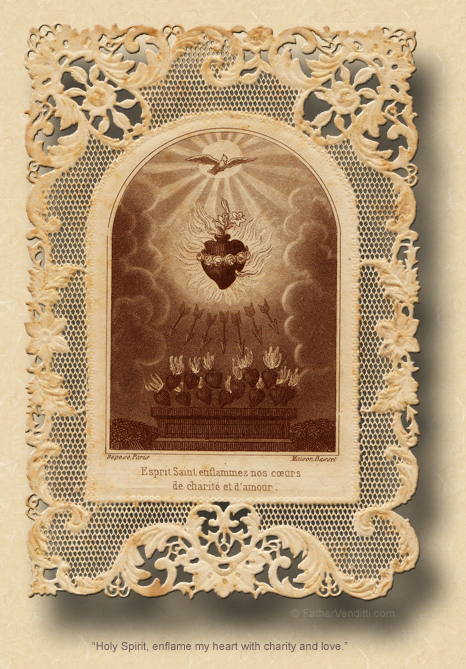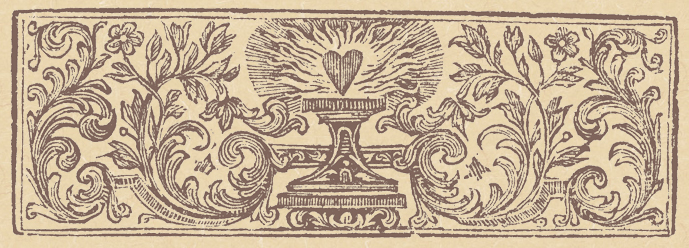Burn, Baby, Burn!
The Twentieth Sunday of Ordinary Time.
Lessons from the tertiary dominica, according to the ordinary form of the Roman Rite:
• Jeremiah 38: 4-6, 8-10.
• Psalm 40: 2-4, 18.
• Hebrews 12: 1-4.
• Luke 12: 49-53.
The Tenth Sunday after Pentecost.
Lessons from the dominica, according to the extraordinary form of the Roman Rite:
• I Corinthians 12: 2-11.
• Psalm 16: 8, 2.
• Luke 18: 9-14.
FatherVenditti.com
|
9:33 PM 8/18/2019 — “I have come to set the earth on fire, and how I wish it were already blazing!” (Luke 22: 49 RM3). Of course, had our Blessed Lord “tweeted” that remark today, he would have his account blocked and receive a visit from Homeland Security; but, our Lord is not contemplating a terrorist act; he’s using the word “fire” like so many prophets and poets before Him and after Him: as a symbol of love. In fact, throughout the Holy Scriptures fire is used to describe the love of God, a love so intense that it “burns” within one, the love of God in particular being a love that purifies, as fire does, everything with which it comes in contact. Psalm 38: “…my heart burned within me, the fire kindled by my thoughts, so that at last I kept silence no longer” (Psalm 39: 4-5 Knox).*
We may convince ourselves that we’ve experienced that kind of love. We fell in love, we married, we believed for all the world that our hearts were on fire with love. We may have believed that our love for someone was like—as it says in the Book of Proverbs—the fire that never says, “Enough!” (Prov. 30: 16).  But we’re wrong. No matter how intense a love we believed we’ve felt at some point in our lives, it doesn’t even register on the meter compared to the love of God. In fact, it’s only by analogy that we can even approach an appreciation of God’s love. Our Lord does help us along, giving us mental images that should be familiar to us: “There is a baptism with which I must be baptized,” He says, “and how great is my anguish until it is accomplished!” (Luke 12: 50 NABRE). And those who have been in love know what it’s like when that love is one-sided, when one has to wonder if that love one feels is felt on the other side; we become impatient, we want it to be “accomplished,” we are in “anguish” until the matter is settled and we know one way or the other if our love will ever be returned. But we have to put the breaks on, and realize that when our Lord speaks of the “baptism with which [He] must be baptized,” He’s talking about His death. It’s His death on the Cross that is the accomplishment of His love. But we’re wrong. No matter how intense a love we believed we’ve felt at some point in our lives, it doesn’t even register on the meter compared to the love of God. In fact, it’s only by analogy that we can even approach an appreciation of God’s love. Our Lord does help us along, giving us mental images that should be familiar to us: “There is a baptism with which I must be baptized,” He says, “and how great is my anguish until it is accomplished!” (Luke 12: 50 NABRE). And those who have been in love know what it’s like when that love is one-sided, when one has to wonder if that love one feels is felt on the other side; we become impatient, we want it to be “accomplished,” we are in “anguish” until the matter is settled and we know one way or the other if our love will ever be returned. But we have to put the breaks on, and realize that when our Lord speaks of the “baptism with which [He] must be baptized,” He’s talking about His death. It’s His death on the Cross that is the accomplishment of His love.
And that’s why the Gospel lesson today continues right after this with mental images that are not at all pleasing to us: a household of five divided three against two, a father against his son, a mother against her daughter, in-laws against in-laws. These images, too, are things with which we are familiar, at least if we grew up in anything resembling a normal family, and they are not the family memories with which we associate love. That’s because the love of God is radically different from the love of man. Our mistake is in equating love with an emotion. The love of God is not a feeling; it’s a determined decision, a decision that is rooted in sacrifice. When these kinds of arguments and divisions arise in a family, what’s it usually about? Someone thinks something is true or false, or someone’s behavior is right or wrong, and everyone else disagrees. The family member clinging to the truth wants what’s best for those he or she loves; the others think that love is best served by abandoning the alleged truth for the sake of unity and getting along. It’s twice in the last month that I’ve quoted in a homily the words spoken so often by Pope Saint John Paul II: “There is no such thing as love separated from truth.” And when one is dedicated to the truth, one’s lot is destined to be sacrifice. And if we’ve ever suffered because of love and were confused about why, most likely it’s because we didn’t understand that love and sacrifice are really just two words for the same thing.
Sacrifice is usually difficult and irksome [says the old Latin Ritual for marriage]. Only love can make it easy, and perfect love can make it a joy. We are willing to give in proportion as we love. And when love is perfect, the sacrifice is complete. “God so loved the world that He gave his only-begotten Son,” and the Son so loved us that He gave Himself for our salvation. “Greater love than this no man hath, that a man lay down his life for his friends.” […] And if true love and the unselfish spirit of perfect sacrifice guide your every action, you can expect the greatest measure of earthly happiness that may be allotted to man in this vale of tears. The rest is in the hands of God.

* Msgr. Knox, following the Vulgate, numbers the Psalms according to the Greek Psalter; the Roman Missal, along with most modern translations, uses the numbering of the Hebrew Psalter.
|

